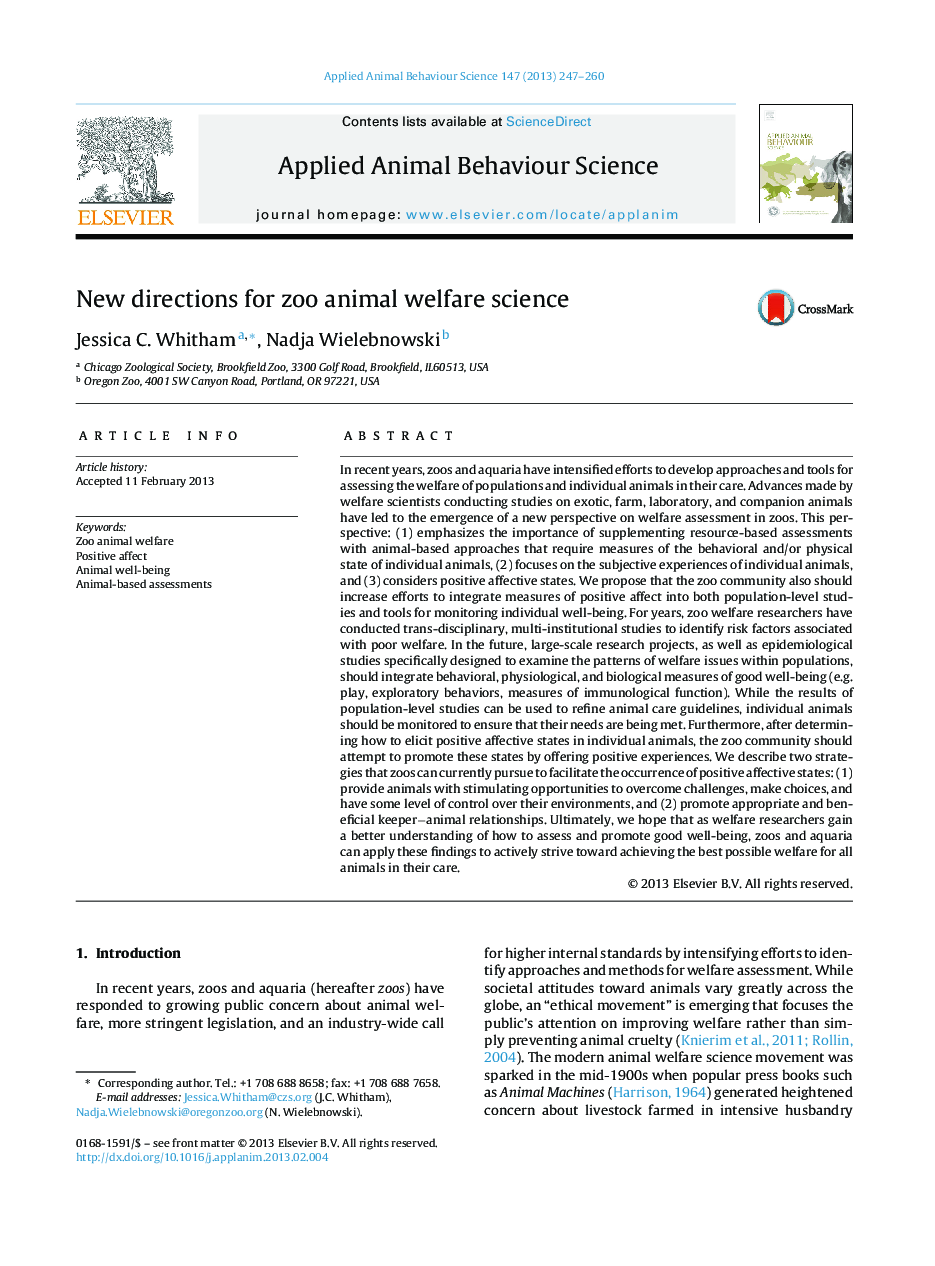| Article ID | Journal | Published Year | Pages | File Type |
|---|---|---|---|---|
| 4522792 | Applied Animal Behaviour Science | 2013 | 14 Pages |
In recent years, zoos and aquaria have intensified efforts to develop approaches and tools for assessing the welfare of populations and individual animals in their care. Advances made by welfare scientists conducting studies on exotic, farm, laboratory, and companion animals have led to the emergence of a new perspective on welfare assessment in zoos. This perspective: (1) emphasizes the importance of supplementing resource-based assessments with animal-based approaches that require measures of the behavioral and/or physical state of individual animals, (2) focuses on the subjective experiences of individual animals, and (3) considers positive affective states. We propose that the zoo community also should increase efforts to integrate measures of positive affect into both population-level studies and tools for monitoring individual well-being. For years, zoo welfare researchers have conducted trans-disciplinary, multi-institutional studies to identify risk factors associated with poor welfare. In the future, large-scale research projects, as well as epidemiological studies specifically designed to examine the patterns of welfare issues within populations, should integrate behavioral, physiological, and biological measures of good well-being (e.g. play, exploratory behaviors, measures of immunological function). While the results of population-level studies can be used to refine animal care guidelines, individual animals should be monitored to ensure that their needs are being met. Furthermore, after determining how to elicit positive affective states in individual animals, the zoo community should attempt to promote these states by offering positive experiences. We describe two strategies that zoos can currently pursue to facilitate the occurrence of positive affective states: (1) provide animals with stimulating opportunities to overcome challenges, make choices, and have some level of control over their environments, and (2) promote appropriate and beneficial keeper−animal relationships. Ultimately, we hope that as welfare researchers gain a better understanding of how to assess and promote good well-being, zoos and aquaria can apply these findings to actively strive toward achieving the best possible welfare for all animals in their care.
